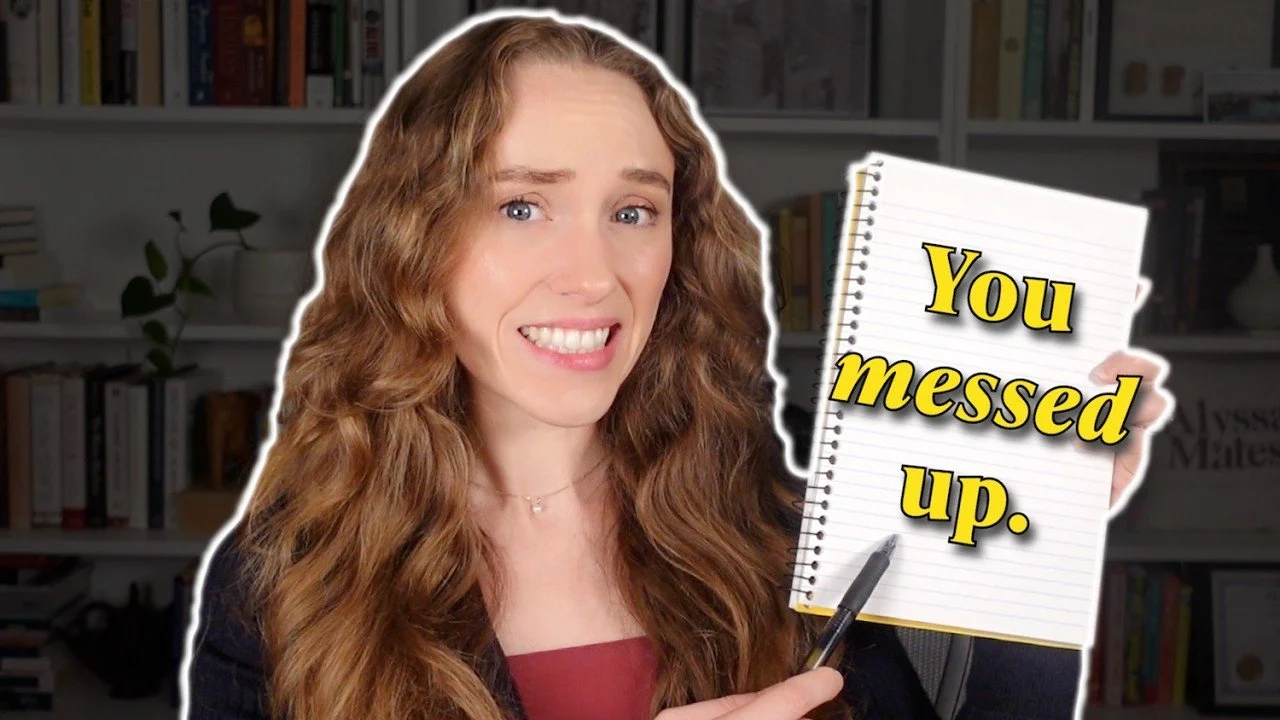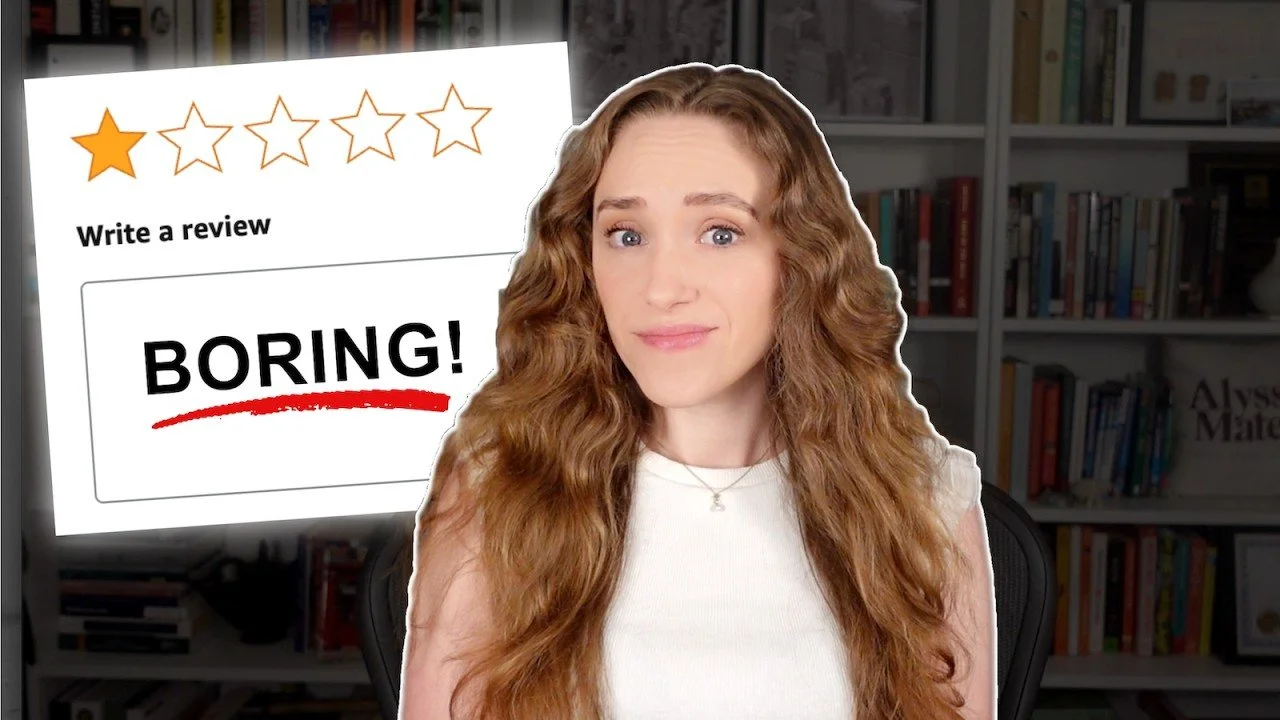Writing a Book Series vs. a Standalone Book
HIT PLAY OR READ THE POST BELOW:
If you're currently working on a novel or hope to one day make a career out of book writing, then you've likely come across the question of whether you should be writing a series or a standalone novel.
If you’re wondering what is a standalone book, they are novels that tell a complete story from beginning to end, and don’t require a sequel to finish out any arcs. Many books that you see sold in bookstores are standalones.
On the other hand, there are also many examples of huge blockbuster series, from Lord of the Rings to Harry Potter – so it makes sense that you might consider writing a series. After all, series like those have enormous readerships, and if you are attached to your story’s world or characters, you might already have some gears turning about what the next installment of your book project might be.
But not every story should be made into a series. In this article, I’ll provide a framework to help you choose between writing a series and writing a standalone book. I'm going to go through three key questions that you need to ask yourself to determine if your book should be a standalone or part of a series.
How Do You Intend to Publish?
This is one of the most important questions you need to ask yourself before deciding to move forward with writing a series or keeping your book as a standalone.
As you likely already know, there are different publishing paths you can take. There is self-publishing, where you are entirely in control of the publishing process. On the other side is traditional publishing, which is where you get a book deal with a publishing house in order to publish your book. There's also hybrid publishing, which incorporates elements of both.
It is totally okay if you don't know which method you're going to use to publish your book yet, especially if you are still in the draft stages of your book. However, it will be helpful for you to think through these options in tandem with your book’s series status.
If you are leaning towards traditional publishing, which is having an established publishing house publish your book, then it is typically best to present your book as a standalone. Even if you think your book could be a series, presenting your novel as a standalone when querying literary agents is advisable.
The reason why I recommend going with a standalone book for this route is because literary agents, in the vast majority of cases, have to sell your first book to a publishing house before they agree to publish any more. This is because it’s rarer for publishing houses to offer a deal for a series from a debut author outright. They prefer buying standalone books so that, if they sell well, they can then plan for a series. But if the standalone doesn’t sell well, then they can leave it and not have to cancel a planned series.
Agents know this is a preference that publishing houses have, so they in turn also mostly look for standalone projects.
There are exceptions to this, of course. There are cases of debut authors receiving book deals on a debut series of books, rather than a standalone novel. But these cases are rare.
If you still envision the book you're working on as the start of a series, or you at least want to keep the series door open, that doesn't mean it's game over for traditional publishing at all. What I recommend doing in this scenario is presenting the book as a standalone novel “with series potential.” This leaves a door open for your book to become a series, however it also ensures that the first novel delivers a rounded and satisfying conclusion.
Another way of saying this is, the chances of a debut author getting a deal on a series are quite low. But the chances of a debut author getting a deal on a standalone book “with series potential” is much higher.
On the flip side, if you plan to self-publish, you are in complete control of the publishing process. In this case I do see potential benefits to publishing a series. For instance, publishing one book in the series per year helps to establish a readership and grow an author platform because you will have readers expecting the next book in the series. Plus, you will also have the opportunity to gain revenue from all the different books in the series, rather than from just one book.
Keep in mind that with self-publishing, you are in complete control of the publishing schedule as well. You will have the flexibility to publish as many installments in the series as you want to. You're not going to have a publisher telling you the series has to be a certain length or that you can't have a series at all. It is totally up to you.
However, I would caution that you make sure that each and every book in that series is up to standard, properly edited, and well designed, because that is going to be what keeps readers coming back. If you just throw books out there for the sake of it, without doing the proper work to ensure that they are high quality, that's not going to do you any favors.
What Is the Genre?
The next factor you need to consider is the genre of your book. There are certain genres that more naturally lend themselves towards series. These would be fantasy, sci-fi, and mystery and crime novels, especially sub-genres like police procedurals where we follow the same detective as they solve different cases. If you are writing in these genres, it is more likely that your audience is going to respond positively to a series and be interested in buying multiple books following the same characters.
There are other genres that typically are not written as series, which would include non-fiction or memoir, literary fiction, and psychological thrillers. Those genres tend to generally produce standalone books. That doesn't mean that the authors can't write in the same genre, as in many cases they do produce more books in that genre, even books with a similar theme or a similar feel. However, they will not be exact series or involve the same characters or world.
There are a handful of genres that could go either way, where we see plenty of standalone novels and plenty of series. Those would be YA, romance, and historical fiction.
How Far Can You Push Your Characters?
The third and final question that I want you to consider when thinking about writing a series or a standalone book is: how far can you push your characters?
This is arguably the most important question to ask when you're figuring out if your book is a series or a standalone, although it is also the toughest to answer. We've all read or watched series where the next installment just keeps getting better and better and it is truly bingeable from beginning to end, and we have all found series that fizzle out to a disappointing stop.
To ensure that you do not lose your reader's interest as you reach the middle and ending portions of your series, make sure each and every installment is justified and that there truly is more to develop and explore with the characters’ journeys.
Ultimately, no series should keep going on and on forever. It has to end at some point, and you as the author should be able to determine when you've pushed your characters enough and then end the series. Accept when you have told these characters’ stories in their entirety.
So try to find the point at which you have exhausted the story. The characters have done everything they could possibly do, and the story is going to satisfy the readers with a rounded conclusion. If you push the series too far beyond its natural limits, then it's going to potentially start to feel outlandish. The plot might become repetitive and you might end up losing your readers.
I hope these tips and framework help you determine if you should consider writing a series or a standalone book.
Thanks so much for reading and happy writing!





